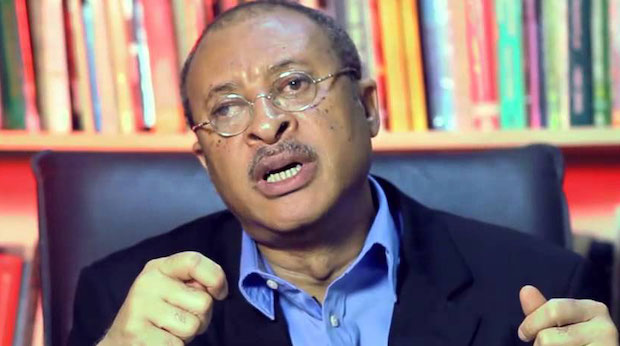Politics
‘No attempt to overthrow Tinubu’s administration,’ Utomi defends shadow govt initiative

A political economist, Prof. Pat Utomi, has clarified that the recently announced shadow government initiative is not an attempt to undermine or overthrow the administration of President Bola Ahmed Tinubu.
Rather, he described it as a legitimate civic effort to promote democratic accountability and policy innovation.
Utomi’s clarification comes in the wake of legal action instituted against him by the Department of State Services (DSS), which accused him of plotting to establish a parallel government.
In a statement issued on Sunday, Utomi addressed the controversy during the fourth edition of the Topaz Lecture Series, titled “Shadow Government: A Distraction or Necessity?” The event was hosted by the University of Lagos Mass Communication Class of 1988 Alumni Association and attended virtually by journalists, political scholars, and civil society leaders.
“This is not an attempt to overthrow or undermine the government, but to foster constructive criticism and accountability,”
Utomi said. “Shadow cabinets are a recognised democratic practice around the world, and Nigeria must embrace institutions that encourage performance and transparency.”
READ ALSO: DSS drags Pat Utomi to court over plan to form shadow govt
He further explained that the initiative provides a platform for alternative policy discourse, helping to deepen democratic values through open engagement.
The Federal High Court in Abuja last week approved the service of court documents on Utomi in a suit filed by the DSS. The court, presided over by Justice James Omotosho, granted the order following an ex parte application by the DSS’s lead counsel, Akinlolu Kehinde (SAN). The suit has raised wider concerns about freedom of expression and political participation in Nigeria.
Utomi, who is currently outside the country, said he first introduced the idea of a shadow cabinet to former President Umaru Yar’Adua in 2008 and has sustained the concept largely with personal resources.
Addressing concerns about the terminology, he said, “Our commitment is not to nomenclature, but to values. Nigeria urgently needs a space where policies are debated and where the government is constructively challenged to do better.”
He warned of the dangers posed by anti-intellectualism and elite complacency, noting that without meaningful reform and engaged citizenship, Nigeria risks further social instability. “Only strong institutions and active citizen participation can safeguard our future,” he said, calling for a national recommitment to democratic ideals over partisan interests.
Join the conversation
Support Ripples Nigeria, hold up solutions journalism
Balanced, fearless journalism driven by data comes at huge financial costs.
As a media platform, we hold leadership accountable and will not trade the right to press freedom and free speech for a piece of cake.
If you like what we do, and are ready to uphold solutions journalism, kindly donate to the Ripples Nigeria cause.
Your support would help to ensure that citizens and institutions continue to have free access to credible and reliable information for societal development.


























